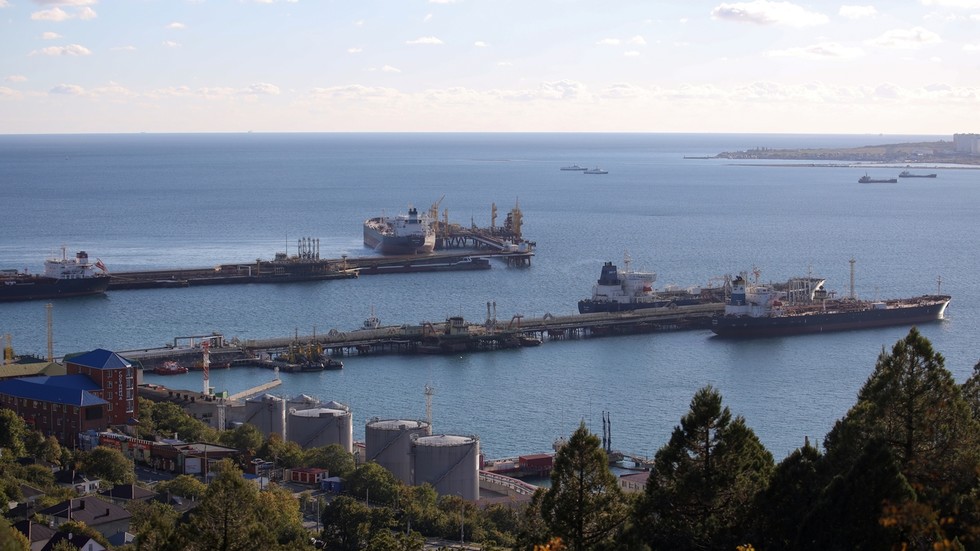
Urals crude topped $60 a barrel on Wednesday, according to Argus data

© Sputnik/Vitaly Timkiv
Russia’s flagship Urals crude breached the $60 price cap set by the EU and G7 countries this week for the first time since the mechanism was implemented in an attempt to curtail Moscow’s oil exports.
The Urals spot price reached $60.18 on July 12, while Primorsk and Novorossiysk-loaded cargoes hit $60.78 per barrel, according to Argus Media.
A price cap on Russian oil imposed by the EU, G7, and allied countries last December prohibits Western shipping, insurance, and re-insurance companies from handling Russian cargoes unless they are sold at or below the set price. A similar restriction was introduced in February for exports of Russian petroleum products.
Russia has responded to the restrictions by outlawing the sale of oil and refined products to buyers that comply with the cap.
“The latest data represents a victory of sorts for Moscow, which has assembled a shadow fleet of ships big enough to transport its crude to buyers with less need for services from companies in G7 countries,” Bloomberg wrote on Wednesday.
Urals’ price rise above the cap is a “setback to Europe and the US, which designed the policy to keep enough oil flowing to the global economy to prevent an inflation shock — while trying to crimp profits for Russia,” the outlet explained.
Meanwhile, Indian refineries are bracing for problems with banks over payments for Russian oil, Bloomberg said, citing oil industry sources. The latest crude pricing may create challenges for some Indian buyers who rely on Western services to insure oil imports. India and China emerged as key buyers of Russian crude after other customers shunned supplies due to Western sanctions.

“Indian banks have been extra cautious in the last few months for fear of sanctions, requiring the refiners to show that the free-on-board price of their cargo was below $60 in order to put the payment through,” said Vandana Hari, founder of Vanda Insights.
An executive at one Indian refinery said purchases of Urals for loading in July could now be priced above the cap, adding that his company may consider a switch from US dollars to other currencies for payments for Russian oil.
Echoing these remarks, the lead crude analyst at Kpler, Viktor Katona, said that “in case some Indian buyers become wary of transactional risks, the most likely change this is going to bring about is a change in currency.”
He believes that Russian oil will continue flowing to India unimpeded as it is largely insured by non-Western providers and overwhelmingly carried on Russia’s own fleet.
For more stories on economy & finance visit RT’s business section




